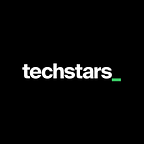Ask a Mentor: Allison Clift-Jennings
Allison Clift-Jennings is a Techstars mentor and the co-founder and CEO of Filament (Techstars Class 45).
With an engineering background in both hardware and software, as well as experience with startups in San Francisco, Los Angeles, and New York City, she is well suited to understanding and leading both the business and technical aspects of Filament’s industrial IoT platform.
In addition to her role at Filament, Allison serves on the Computer Science & Engineering advisory board at the University of Nevada, Reno. Her personal interests lie in systems theory, permaculture, and analog music synthesizers.
What do you love most about mentoring startups? Why do you do it?
I mentor because I wish I had someone helping me out when I was at that stage. So much of building a successful company has to do with making as few major mistakes as possible, and making them as fast as possible. Often the best way to do this is to get mentorship from others who can help guide.
As an alumnus of an accelerator, how did your company, Filament, benefit from having access to mentors and educational opportunities?
It was essential to our success. There is nothing quite like an accelerator to grill you on every aspect of the company — from the product, to the market, to the vision, to the team, to being able to communicate it all. For us, some mentors cut through the confusion so quickly and gave us useful insight that we still use today.
What is the best and worst advice you’ve ever received?
The best advice was to always always always be of high character. In other words, don’t misrepresent yourself, your company, or any other truth. It can take years to repair, and it’s never worth it. It’s surprising how many founders will make exceptions to this rule from time to time, thinking it will get them further. It never does.
The worst advice I’ve received was with a prior company I was involved with, and to ignore market research and customer feedback we had gained, and instead pivot to a totally different space. Don’t ignore customers, they’re usually right.
What is the most common mistake you see startup founders make?
Either be too afraid or too arrogant to ask for help. I made this mistake for years, and I regret it now. It’s kinda nice now to ask for help when I don’t know something, because getting people’s’ feedback is so very interesting, and can help so much. It’s like having a cheat sheet for your company — by leveraging your network’s experience.
Did you have any mentors that helped you shape your career?
I do. One is still a dear friend. I was working for him, and had decided to leave to start my own company that was somewhat in his space as a competitor. I felt bad because he was a wonderful mentor, but he was so kind about it (although disappointed). That was the beginning of my 20 year entrepreneur track. He’s one of my biggest supporters now, and I still learn from him every time I speak with him.
What is your go-to blog or newsletter?
I have a short list that I save for weekends:
- For how we want to think about our world in the long-term: Stewart Brand’s “The Long Now” blog
- For how to look at the world through another person’s lens: Aeon Magazine
- For keeping up with technology trends: Daily digest by Hacker News
- For considering balance and effectiveness as a startup founder: 13p5
Any words of wisdom for someone launching a startup?
Get involved with others who are also launching a startup, funding startups, hosting meetups, running coworking spaces, etc. Do not work in isolation — it’s almost guaranteed that you’ll fail if you’re isolated. I did this for too long early in my career.
